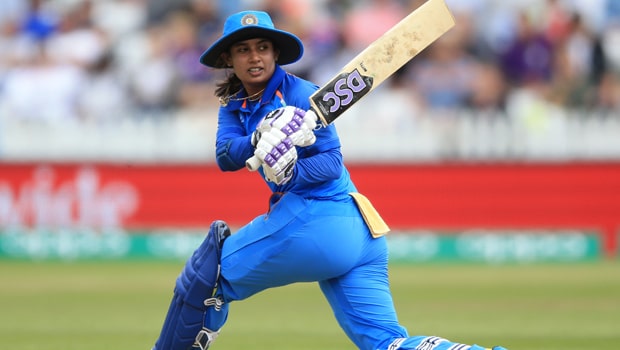As India gears up for their next crucial encounter in the Women’s T20 World Cup, the pressure to deliver a comprehensive performance is palpable. With signs of improvement from their last game against Pakistan, India has yet to hit their best form. This match is not just a must-win but an opportunity to play with authority and announce their presence in the tournament, which could have implications for net run rate as well.
One of the more notable changes in the Indian lineup is the reshuffling of the batting order, with Jemimah Rodrigues coming in at number three and captain Harmanpreet Kaur dropping down to four. This move has drawn mixed opinions, but I believe it is a good thing. It offers a solid foundation for India’s middle order. Rodrigues’ role as a stabilizer at number three could set things up nicely for Harmanpreet to come in and accelerate when needed. Following them, Richa Ghosh and Deepti Sharma provide additional firepower, making the middle and lower order a formidable unit.
India’s batting unit looks well-balanced, with Shafali Verma providing explosive starts at the top. The team’s challenge will lie in adapting to the slow pitches, particularly the kind Sri Lanka is known for. Power-hitting might not be as effective on such tracks, and India will need to focus on strike rotation—converting ones into twos and pushing the fielders in the deep. This strategy could be a key mantra for success, especially with Sri Lanka’s spinners taking pace off the ball.
On the bowling front, India’s attack looks strong, with versatile options. Pooja Vastrakar’s swing and control, combined with the spin of Shreyanka Patil and Asha Shobhana, make the Indian bowling lineup a real threat. Shreyanka’s ability to bowl at the death adds another dimension to India’s defense strategy. She is a versatile bowler. Additionally, Asha, who made an impression in the Women’s Premier League (WPL), continues to grow in confidence and could prove vital with her leg spin. Arundhati Reddy can swing the ball and keep it under control, is an excellent addition to the side. She is a very good bowler and very decent with the bat.
India have nearly all their bases covered. They did struggle with the bat against New Zealand, largely due to the slower pace of the ball, and that will once again be a challenge against Sri Lanka’s all-spin attack. How India adjusts their batting when the pace is taken off will be something to watch. They could take a lesson from England’s approach in the previous match. In this tournament, success may not just come from hitting boundaries but also from rotating the strike. India will need to be ready to work the ball around, run hard, put pressure on the fielders in the deep, take twos and threes, and stay busy at the crease. That will be their key challenge in the upcoming game.
Sri Lanka, on the other hand, has their own set of challenges. Their all-spin attack has been a strength, but they’ll need something special from their star player Chamari Athapaththu, who has struggled for form recently. While Sri Lanka’s historic win against India in the Asia Cup might give them confidence, they’ll need a complete team effort to compete against India’s formidable lineup.
Young players like Vishmi Gunaratne, a former U19 captain, are bringing both talent and promise to the Sri Lankan team. Gunaratne is an exciting player to watch, with a natural flair and solid technique. Her next step will be to add more power to her game, which will elevate her performance at the international level. It will be interesting to see how she fares in this tournament as she continues to develop her skills.
Harshitha Samarawickrama, who scored valuable runs in the Asia Cup against India, is another player to watch. She has proven herself to be a class act, with the ability to anchor innings and build partnerships. Sri Lanka’s top order is filled with capable players, showing good depth and balance. What’s notable is that they are no longer overly reliant on their captain, Chamari Athapaththu, to carry the batting. With emerging talents like Gunaratne and consistent performers like Samarawickrama, Sri Lanka’s batting lineup is shaping up to be more resilient and versatile.
In terms of bowling, Sri Lanka relies heavily on spin. Udeshika Prabodhani’s left-arm seam, which operates at a steady pace of around 60 mph, could be effective on these slow pitches. For Athapaththu, an earlier introduction into the attack might be necessary to put pressure on India’s top order.
This match is set to be a battle of spin and adaptability. India, with all their resources in place, will be keen to assert their dominance, while Sri Lanka will look to replicate their Asia Cup magic. The result could hinge on how well India adapts to the spin-heavy attack and the slower nature of the pitch.






















